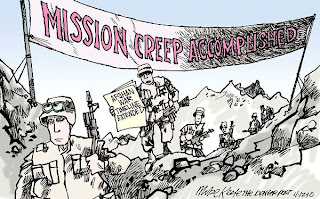Where does the word robot come from?

A rare example of a Czech word ('robota') entering English: robot was introduced to the public by the Czech interwar writer Karel Čapek in his play R.U.R. (Rossum's Universal Robots), published in 1920. The play begins in a factory that makes artificial people called robots, though they are closer to the modern ideas of androids, creatures who can be mistaken for humans. They can plainly think for themselves, though they seem happy to serve. At issue is whether the robots are being exploited and the consequences of their treatment. source Kathleen Richardson points out in this BBC broadcast that our notions about robots are fanciful - they are generally clumsy, ineffective machines. Audio: Where does the word robot come from?’ So robots are not going to rule the world any time soon. But are they going to challenging for the Marathon Gold Medal at the next Olympics? On this evidence, perhaps not: A version of this post is included in the English FAQ Te
